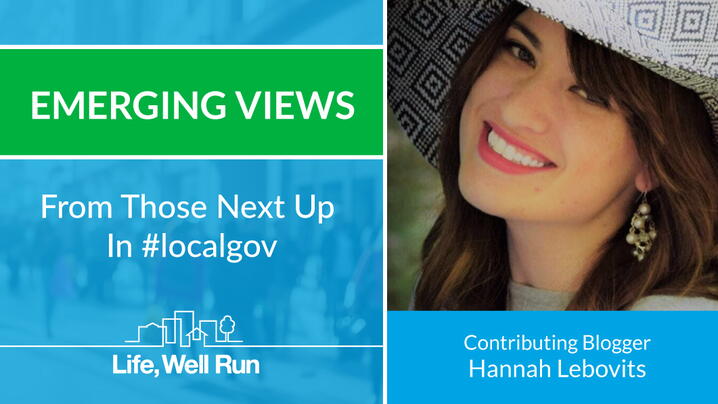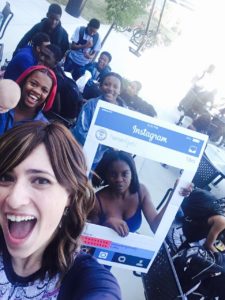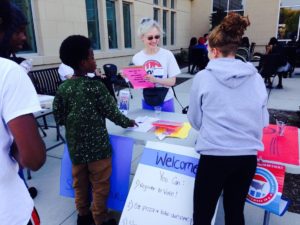
You know, it’s strange. I’ve been working in the community development field for almost ten years and yet, I’m not actuallysure when I first became aware of local government. I remember calling the Mayor’s office in fourth grade to advocate for a snow day (ironically, I was told that the city did not determine such things), but I cannot point to a singular event that would be considered my municipal “aha” moment.
Do you remember when you first realized there was a governing body that decided when the street lights turned on or how many homes could be built on your block? Perhaps a family member worked in local government or was generally active in local politics. Maybe you moved because of local happenings that did not suit your family needs. Of course, it’s also possible that you only became aware of local government when you voted in a regional election for the first time. I would suggest one way that is probably very unlikely, though: your local government probably didn’t invite you to participate in any civic discourse prior to your 18th birthday.
 Many local governments struggle to engage even their most active registered voters, so I can understand that youth participatory efforts might not be a pressing concern. After all, young people cannot vote, do not often contribute to the tax base and are usually not living independently. The school district is tasked with educational matters while the police and judicial departments create safe spaces and maintain order. Other city departments like Parks and Recreation and Child and Family services, provide important resources to ensure that young people are healthy and thriving. And I am sure that many local government officials likely believe that these efforts are adequate. However, the truth is that while young people may not be able to vote at the polls, many of today’s youth see themselves as a part of the electorate. They experience our policy inconsistencies, they care about social causes and they want to be heard.
Many local governments struggle to engage even their most active registered voters, so I can understand that youth participatory efforts might not be a pressing concern. After all, young people cannot vote, do not often contribute to the tax base and are usually not living independently. The school district is tasked with educational matters while the police and judicial departments create safe spaces and maintain order. Other city departments like Parks and Recreation and Child and Family services, provide important resources to ensure that young people are healthy and thriving. And I am sure that many local government officials likely believe that these efforts are adequate. However, the truth is that while young people may not be able to vote at the polls, many of today’s youth see themselves as a part of the electorate. They experience our policy inconsistencies, they care about social causes and they want to be heard.
On September 26th, National Voter Registration Day, I volunteered to run a registration drive at my local public high school. The event was open to all students and included a brief questionnaire about citizenship and local government. We asked students to consider (1) what does it mean to be a citizen? (2) what is the purpose of government? and (3) if you were the mayor- what would you do differently? The student responses were very telling- not only in their content but in the way in which students identified with issues. Answers to the third question were particularly eye-opening.
“If I where Mayor I would change laws regarding weapons in the city.”
“[I would] try to lower prices.”/ “I would give more money to people.”
“I would ask students and other people who are unheard what improvements they’d like to see.”
I don’t know if these answers surprise you. I do know that we don’t often consider young people when we think of issues of representation, gun control and taxation. We might think of them in a tokenistic sense- as the symbols of a horrific event or as the victims of ill-advised tax cuts that strip family resources- but we don’t always consider their ideas and their opinions in a meaningful way.
There’s change on the horizon, though. More and more cities and counties are creating youth councils and youth workforce development programs. Many municipal elected officials and candidates are looking for a way to resolve private-public school tensions by empowering students and young adults. And several national/regional local government-focused nonprofits have created toolkits and guidelines for local governments to get started on the youth engagement path.
Although I might not remember exactly when I became aware of local government, I can easily identify the formative experience that lead to my interest in and appreciation for local government. It was the moment that my opinion mattered. When I was no longer a bystander or a coffee-fetcher but a valuable addition to the decision-making process. As young professionals in local/regional government positions, it is our turn to invite the next generation to the table. Advocate for a youth advisory board in your city, reach out to the local high school to invite students to discuss community needs or just walk up to any young person and ask them what changes they’d like to see. They’ll probably embrace the dialogue and provide a fresh perspective. And who knows? You might be the catalyst for their municipal “aha” moment.
Hannah Lebovits, MPA is an urban public policy PhD student at Cleveland State University’s Levin College of Urban Affairs where she studies local government structure and democratic service-learning.
Hannah earned a Bachelor of Arts degree in Political Science from Touro College and a Master of Public Administration degree from Cleveland State University. She got her start in local government as an aide for a New York City Councilwoman while in undergrad. Since “discovering” the incredible power of local government, Hannah has dedicated her career to good governance and creating public value. Hannah is a member of ICMA, ASPA, ELGL and the Public Administration Theory Network.
New, Reduced Membership Dues
A new, reduced dues rate is available for CAOs/ACAOs, along with additional discounts for those in smaller communities, has been implemented. Learn more and be sure to join or renew today!
